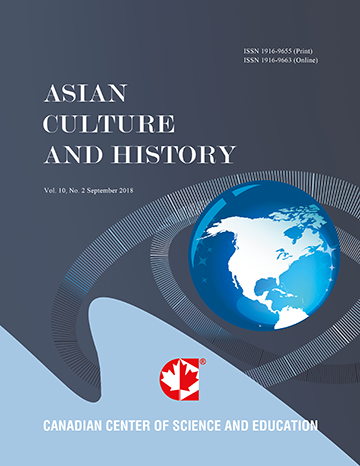An Interpretation of Muhammad
- Li Liu
Abstract
There is a meaningful background of social reform for Mohammed to create the monotheism for the Arabian world. He reformed the religion of the Arabian tribes and established Islam, the supremacy of faith, of only one god. Meanwhile, on the basis of religion, he transformed the social structure of the original tribal clan and broke the shell of Arabian tribal system, as laid a foundation for the unified national country. Therefore, his creation of the religion and the missionary activities bore the significance of social revolution. He was not only a religious prophet but a reformer.- Full Text:
 PDF
PDF
- DOI:10.5539/ach.v3n2p41
Journal Metrics
Google-based Impact Factor (2017): 5.42
h-index (January 2018): 11
i10-index (January 2018): 21
h5-index (January 2018): 6
h5-median (January 2018): 9
Index
- Academic Journals Database
- CNKI Scholar
- COPAC
- EconPapers
- Elektronische Zeitschriftenbibliothek (EZB)
- Excellence in Research for Australia (ERA)
- Genamics JournalSeek
- Google Scholar
- Infotrieve
- LOCKSS
- MIAR
- NewJour
- Open J-Gate
- PKP Open Archives Harvester
- Publons
- RePEc
- Scilit
- SHERPA/RoMEO
- Standard Periodical Directory
- Technische Informationsbibliothek (TIB)
- The Keepers Registry
- Universe Digital Library
- WorldCat
Contact
- Ivan YongEditorial Assistant
- ach@ccsenet.org
